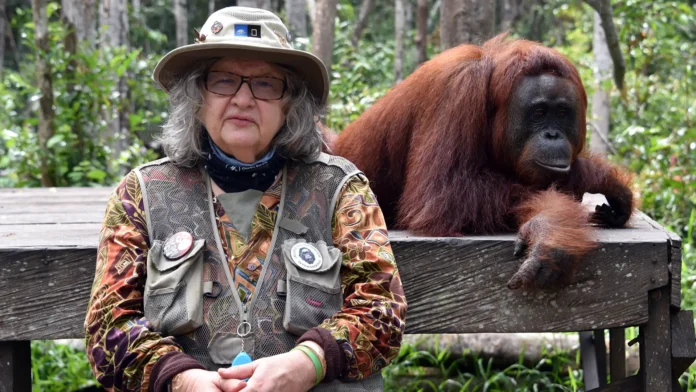
Birutė Galdikas honoured by Vytautas Magnus University
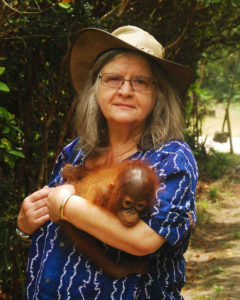
Anthropologist Birutė Galdikas is celebrating the 50th anniversary of her career in Lithuania, at Vytautas Magnus University in Kaunas. Galdikas will deliver a public lecture, meet with VMU representatives and attend a forum of the Lithuanian World Community, the university announced. She will also meet with VMU students from Indonesia. The public lecture at VMU’s Centre of Studies and Research will be held on Monday, October 25 at 10am local time. This year marks 50 years since Galdikas founded the first orangutan study centre in 1971 in Indonesia, where she continues her environmental activity to this date.
Birutė Marija Filomena Galdikas or Birutė Mary Galdikas, is a Lithuanian-Canadian anthropologist, primatologist, conservationist, ethologist, and author. She is a professor at Simon Fraser University. In the field of primatology, Galdikas is the world’s leading authority on orangutans. She has studied them in Indonesian Borneo since 1971. She is also involved in conservation and rehabilitation efforts for orangutans. Galdikas forms part of a trio of primatologists nicknamed the “Trimates,” along with Jane Goodall and Dian Fossey. Galdikas spends part of the year in Indonesia and teaches half time at Simon Fraser University in Vancouver.
Biography
At the time of her birth, Galdikas’ parents were refugees on their way to Canada. Her family moved to Toronto when she was two and later to northern Ontario. From an early age, Galdikas had an interest in animals and exploration. She began her undergraduate degree at the University of British Columbia in Vancouver, before moving to the United States with her family. She continued her studies at the University of California, Los Angeles (UCLA). In 1966, she graduated with a Bachelor of Arts in psychology and zoology and in 1969 with a Master of Arts in anthropology.
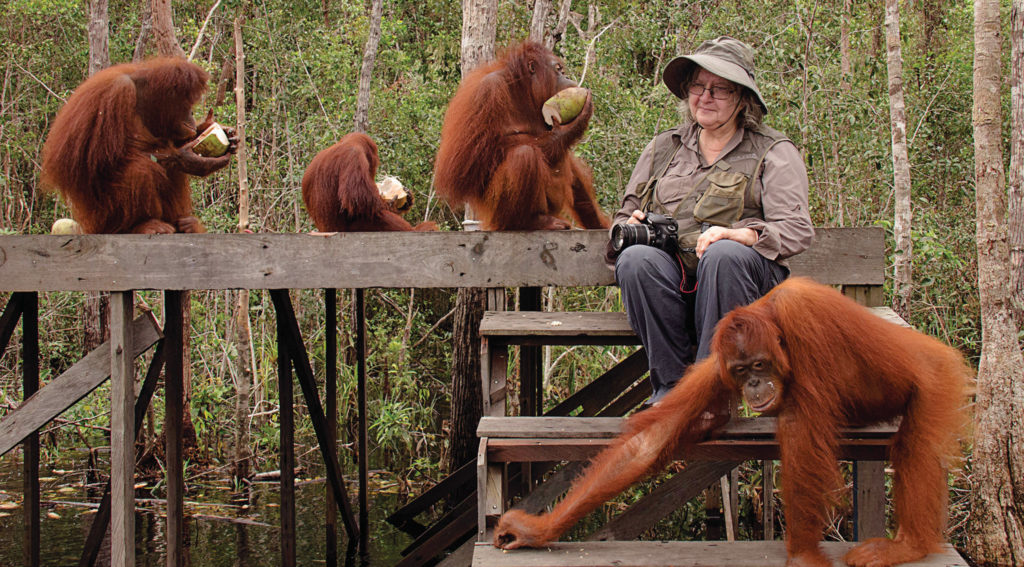
The 2019 documentary “She Walks With Apes,” by CBC’s The Nature of Things, features Birutė Galdikas, Jane Goodall and Dian Fossey.
After a lecture at UCLA, Galdikas approached leading anthropologist Louis Leakey about studying orangutans. Leakey had mentored Jane Goodall and Dian Fossey in their field research on chimpanzees and gorillas, respectively. While Leakey secured funding for her research, Galdikas finished her PhD course work. Of her first meeting with Leakey, Galdikas remembers, “As soon as I heard him talk about primates and great ape studies, and sending Jane and Dian into the field, I knew this was it.”
In 1971, Galdikas and her then-husband, Rod Brindamour, travelled to Tanjung Puting Reserve. The reserve is on the Indonesian portion of the island of Borneo. They carried very few supplies and travelled into an area with no roads, electricity, or telephones. They faced difficult living conditions, including bugs, parasites, wild animals, toxic plants, viruses, high humidity, and limited food.
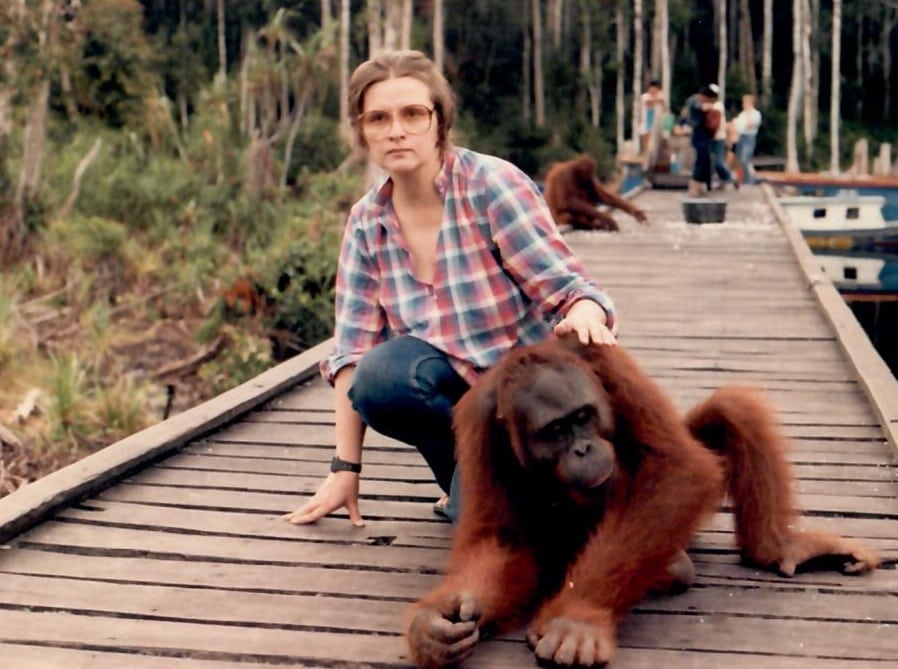
Many people doubted that Galdikas would be able to study orangutans, as they are elusive animals. Despite their slow-paced and solitary nature, Galdikas eventually gained the trust of the animals after years observing them. She studied their diets, mating habits, social interactions and birth cycles. Before Galdikas’ work very little was known about orangutans. Her research was a major addition to the field.
Born to Be Wild, a 2011 IMAX film, chronicles the work of Birutė Galdikas and Daphne Sheldrick, a celebrated elephant conservationist. In 1978, Galdikas earned her PhD in biological anthropology from the University of California, Los Angeles. Although much of her research was published in her thesis, she did not publish frequently. This drew criticism from some who felt she was withholding significant research material. Galdikas argues that her work to protect orangutans and conserve their habitat is more important than studying them. Soon after arriving in Indonesia, she established care centres and rehabilitation and release programs for ex-captive orangutans. She co-founded Orangutan Foundation International in 1986 and Orangutan Foundation Canada in 2011. Both of these organizations work to protect wild orangutans.
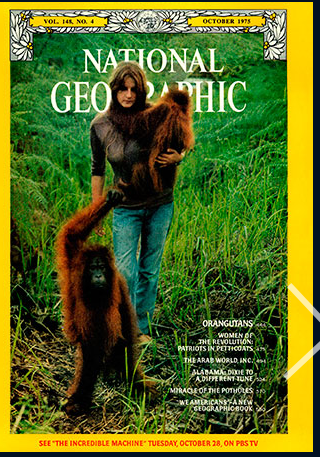 In Indonesia, she has supervised field research students, is professor extraordinaire at Universitas Nasional in Jakarta, and helped establish Tanjung Puting as a National Park. She served as senior advisor to Indonesia’s Ministry of Forestry from 1996 to 1998. In 1997, she received the Kalpataru award (Hero of the Earth), the highest honor given by Indonesia for environmental leadership.
In Indonesia, she has supervised field research students, is professor extraordinaire at Universitas Nasional in Jakarta, and helped establish Tanjung Puting as a National Park. She served as senior advisor to Indonesia’s Ministry of Forestry from 1996 to 1998. In 1997, she received the Kalpataru award (Hero of the Earth), the highest honor given by Indonesia for environmental leadership.
Other awards she won include the Satya Lencana Pembangunan Medal, Indonesia; the PETA Humanitarian Award, (1990); the United Nations Global 500 Award, (1993); the Order of Canada (1995); Tyler Prize for Environmental Achievement (1997); Queen Elizabeth II’s Golden Jubilee Medal (2002); Cross of the Lithuanian State Order of Merit, Lithuania (2010); Pride of Lithuania Award, Lithuania (2011); Queen Elizabeth II’s Diamond Jubilee Medal (2012).
Galdikas is currently a professor at Simon Fraser University in Burnaby, British Columbia, and Professor Extraordinaire at Universitas Nasional in Jakarta, Indonesia. She is also president of the Orangutan Foundation International in Los Angeles, California. Galdikas published her memoirs, Reflections of Eden, in 1995. Her life is described in six other books, and documentaries about her work have been released in Indonesia, Japan, USA, France, Italy and Australia. She is president of the International Orangutan Foundation, which is active in USA, Australia, Indonesia, and Great Britain, and is also being established in Lithuania.
Prof. Galdikas is proud of her special bond with Lithuania, and is active in its academic life and scientist training, giving lectures and taking on student interns in Borneo. She received an honorary doctorate from Vytautas Magnus University in 2010. This year, she joined the President Valdas Adamkus Award Committee, which addresses environmental problems in Lithuania.
LRT.lt, Wikipedia, other internet sources





























